SECONDARY NEWS
From the Assistant Principal
Miss Kim Bailey
kbailey@arm.catholic.edu.au
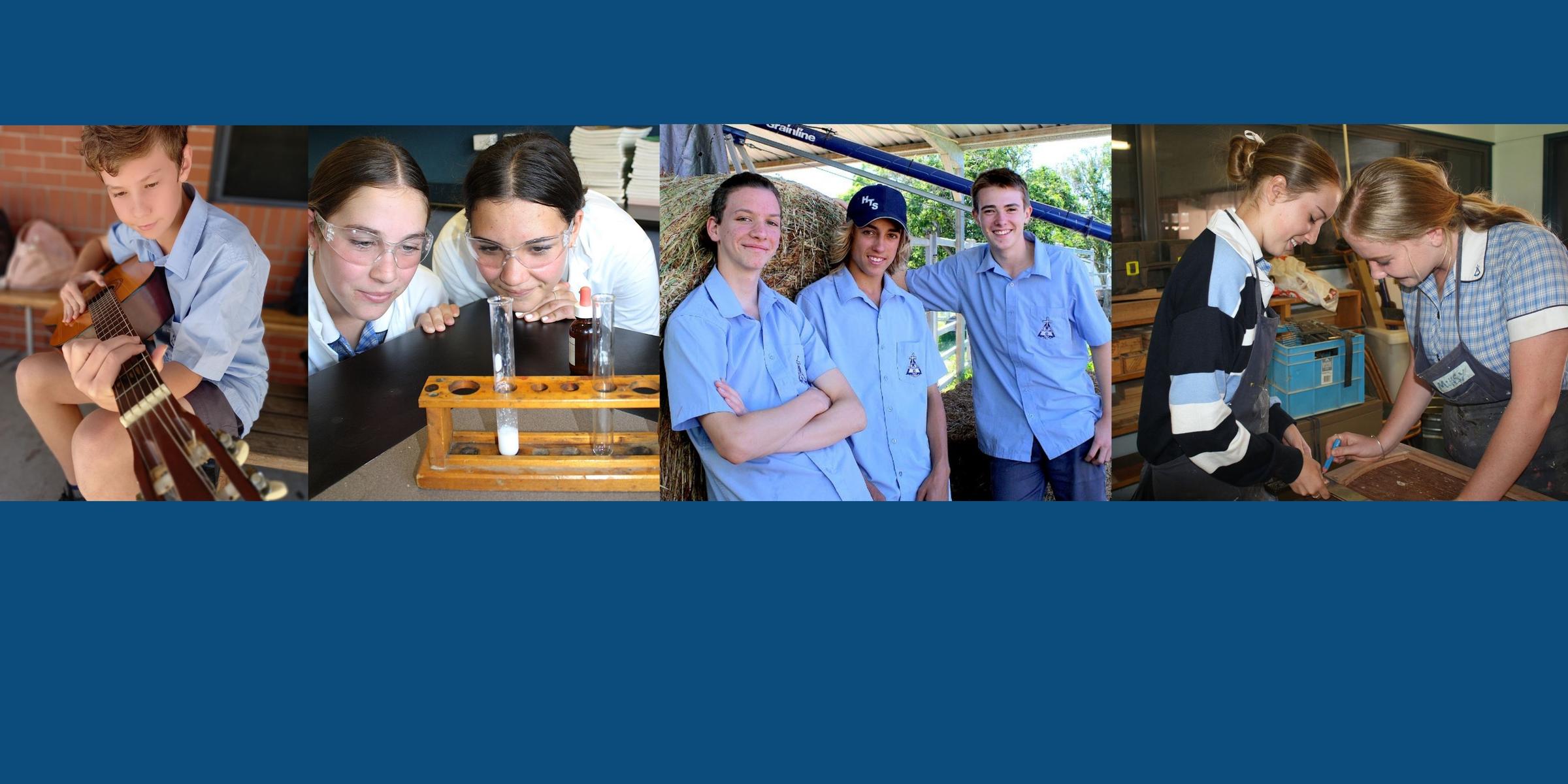
SECONDARY NEWS
From the Assistant Principal
Miss Kim Bailey
kbailey@arm.catholic.edu.au
Family Conferences began last night for Year 7 and continue throughout the week for Years 8, 9 & 10.
Teachers will be available in Holy Trinity Hall from 3.45 to 5.45 p.m. on each of the afternoons.
Thank you to all families for attending the conferences.
NAPLAN testing continues this week for all students in Year 7 and Year 9.
If a student is absent on one or more of these days, catch-up sessions will be held. They should ensure that they are rested so that they can complete the tests to the best of their ability.
Monday - Conventions of Language (Year 9 only)
Tuesday – Conventions of Language (Year 7) and Numeracy (Year 9)
Wednesday – Numeracy (Year 7)
Elevate Education will return this year to deliver study skills seminars to students in Years 7 - 10. They will be here next Monday and Tuesday.
The focus for the sessions will be as follows:
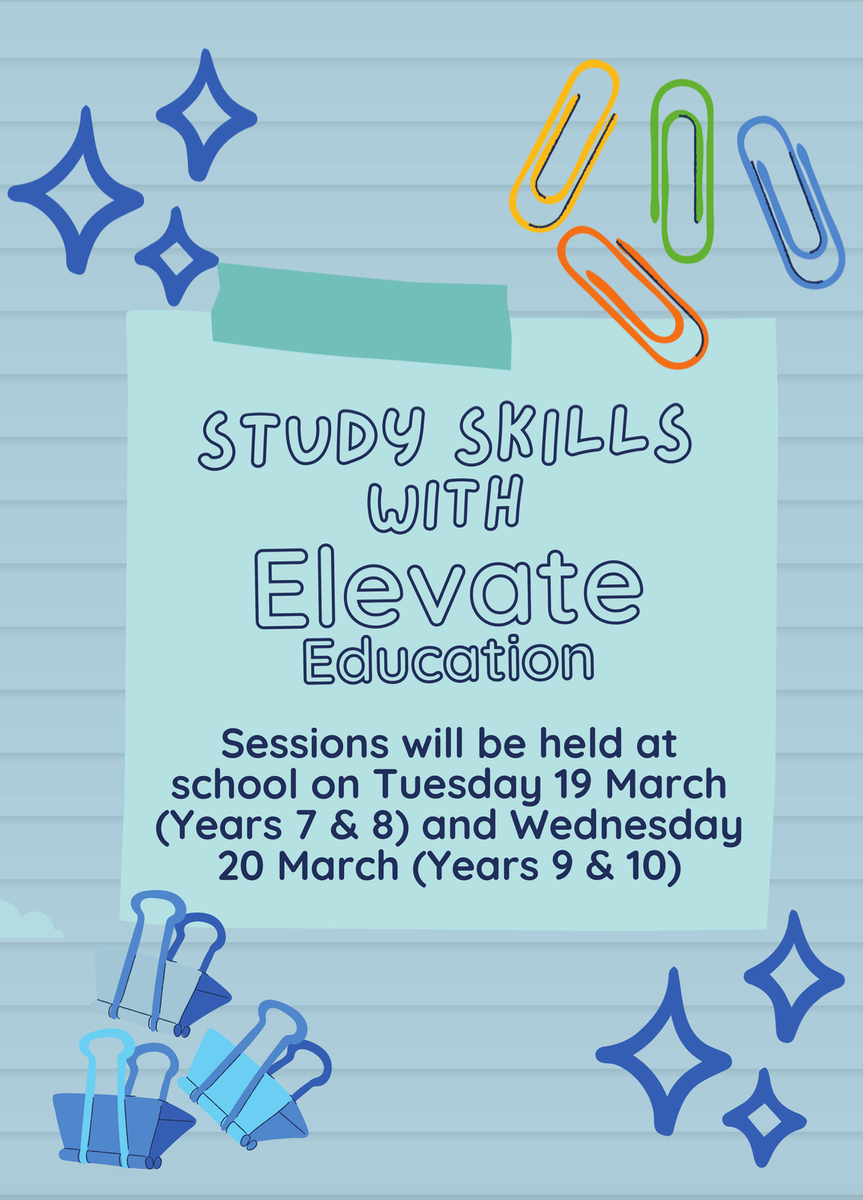
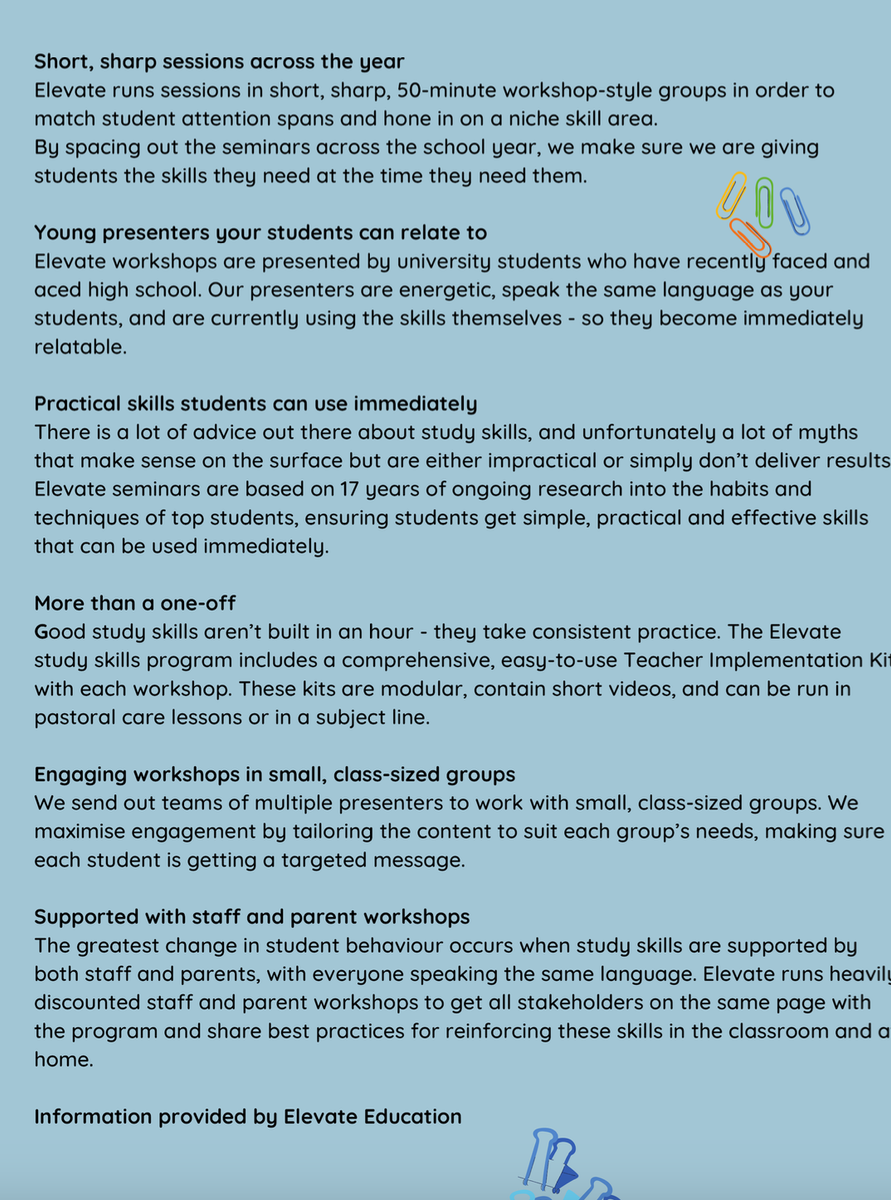


Literacy and numeracy skills are essential for success in learning and life after school. The HSC minimum standard was introduced to ensure students have the reading, writing and numeracy skills needed for everyday life, work and further study.
Students need to meet the HSC minimum standard to receive the HSC. To show they meet this standard, students must achieve Level 3 in short online reading, writing, and numeracy tests. Your child will have multiple opportunities to show they meet the HSC minimum standard. These tests can be taken when your child is ready—be that this year, in Year 11 or 12, or after the HSC.
For more information and flyers about the online tests and their components, visit the NESA website: https://educationstandards.nsw.edu.au/wps/portal/nesa/11-12/hsc/hsc-minimum-standard.
We will undertake these tests at school towards the end of this term and early next term.
Please return the slip on the note that was sent home if you DO NOT wish your child to sit the trial online tests. If you have any questions, please contact Miss Bailey.
Last week, all student in Years 7 - 10 received their assessment booklets, which outlined the assessment guidelines for the year.
For Stage 5 students, this important document contains vital information regarding the RoSA, Record of School Achievement. It would be appreciated if parents could read the information in the booklet and discuss the issues raised with their children. The assessment process is similar to that which the students will encounter in Stage 6 as they prepare for their Higher School Certificate.
Students have received a hard copy and have also had copies emailed to them. Copies are attached below for parents and have also been shared via Compass.
Google Classroom allows teachers to: create classes, distribute paperless assignments, post announcements and class questions, and provide feedback, all through an intuitive, student-friendly interface.
As a parent, we recognise how important it is for you to keep up-to-date on your student's progress in their classes. Google Classroom provides a powerful feedback channel for parents called Guardian Email Summaries.
Year 7 parents will have received an email inviting them to see summaries of their child's Google Classroom activity. If you accept the invitation, you can choose from daily (Monday - Friday) or weekly summaries. You do not have to accept the invitation; you can opt-out anytime.
Parents of students in Years 8 - 10 should still be receiving updates if the invitation was accepted in 2023.
The flyer and link below provide you with some more information about Guardian Summaries. Please contact Miss Bailey if you have any further questions or issues.
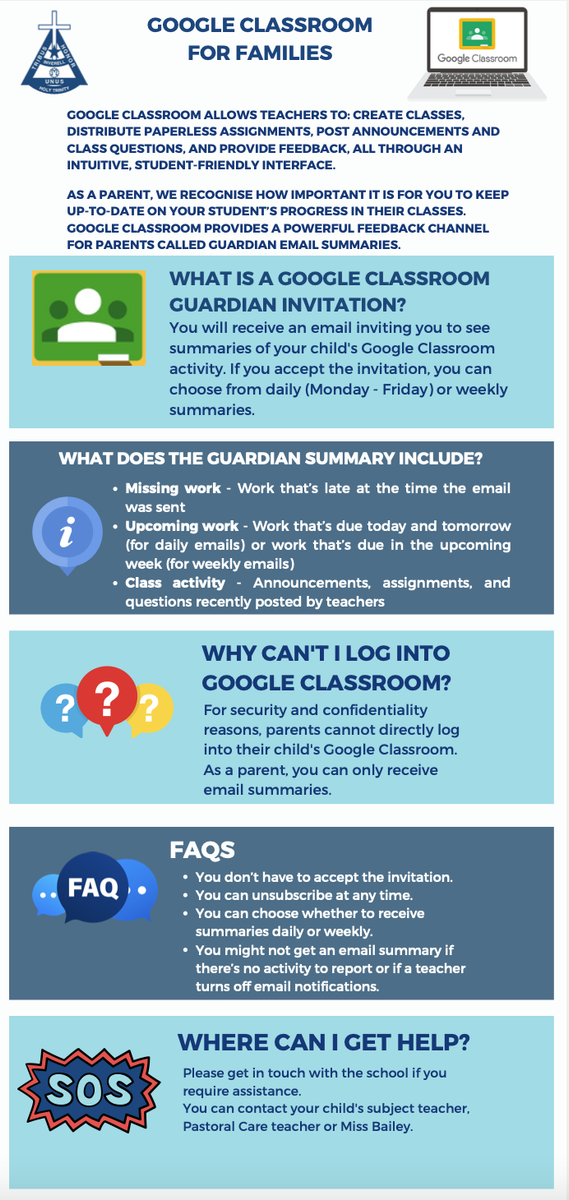

If you have any questions or concerns about your child's learning or wellbeing, please make contact with Miss Bailey, your child's Pastoral Care teacher or their subject teacher. We are only too happy to assist.
Year 7:
7E - Mr Peter Ehsman
7J – Mr Jack Jeffery
7K - Miss Kristina Majetic
7M – Mrs Veronica McCormick
Year 8:
8G - Mr Anthony Gaias
8M - Mrs Christine McLachlan
8T - Mrs Kathy Townsend
8W - Mr Sam White
Year 9:
9C – Miss Claudia Cush
9E - Mrs Angela East
9U - Mr Uebergang
Year 10:
10B - Miss Kim Bailey
10K - Mr David Koch
Students and parents are encouraged to approach the relevant Pastoral Care teacher if they need assistance.
Stage Leaders
Stage 4 - Mr Anthony Gaias
Stage 5 - Mrs Angela East
Miss Kim Bailey
Miss Claudia Cush
Mrs Claudia Dolbel
Mrs Angela East
Mr Peter Ehsman
Mr Anthony Gaias
Miss Alana Goldman
Mrs Mary-Jane Guest
Mrs Malynda Hiscock
Mr Jack Jeffery
Mr David Koch
Miss Kristina Majetic
Mrs Veronica McCormick
Mrs Christine McLachlan
cmclachlan@arm.catholic.edu.au
Mr Matthew Pye
Mrs Jane Taylor
Mrs Katherine Townsend
Mr Blake Uebergang
Mrs Carrie Watchirs
Mr Sam White
Staff can be contacted directly using the email address above or via the Compass portal.
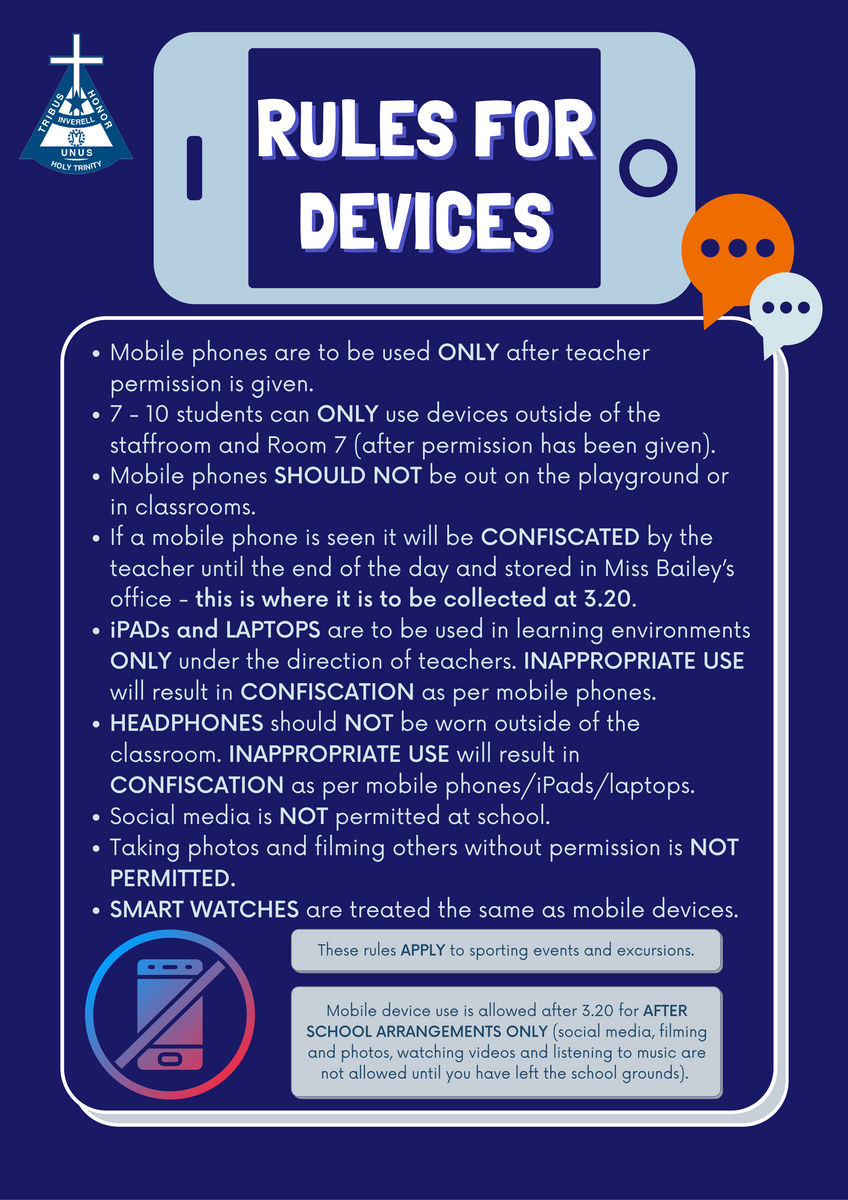

Students are not permitted to use their devices unless instructed by a teacher. This includes both the classroom and the playground. The students are aware of this policy and receive constant reminders in Pastoral Care, their teaching classes and there are also many posters displayed all around the school.
If a student needs to use their device, they must first seek permission from a teacher and use it in an area designated by the teacher. This is usually under their direct supervision or outside the Secondary staffroom.
If students are unable to follow this policy, their phones are confiscated and placed securely in Miss Bailey's office, where they are collected by the student at the end of the school day.
Teachers record each time a device is confiscated. After it is confiscated for a second time, it remains at school until it can be collected by a parent or carer.
Here are 5 reasons you can give your child as to why they should start working on their assignments immediately.
1. GET YOUR BRAIN THINKING ABOUT THE TOPIC: Even if your assignment isn’t due for weeks, start thinking about it immediately. At the very least, answer the key starter questions on the day you get your assignment. Even if you are not thinking about it directly, your subconscious will be hard at work.
2. FIND LIBRARY RESOURCES: Although the school or local library will probably not be your main source of reference, you should drop in soon after receiving the assignment. Your teacher will probably have alerted the school librarian to the assignment, and reference books, magazines, etc., may well be displayed. These will disappear quickly if the whole class has the same assignment. Books, periodicals, and magazines can sometimes be a useful general overview for an assignment, and they help to clarify a direction as you begin to immerse yourself into the assignment topic. It is not a good idea to only use Google!
3. DISCOVER OTHER RESOURCES: You could also ask your local librarian for any additional direction on where to look for resource material for your assignment. Librarians are often your best source of information. They know how to help people access relevant and appropriate information in books, the Internet or computer-based references. One of the challenging aspects of Internet-based searches for school students is the complexity, language and purpose of websites, not to mention bias and reliability.
4. STARTING EARLY MEANS MORE TIME TO EXPLORE & ASK FOR HELP IF NEEDED: If you do some initial research on the assignment points you’ve identified through the library, references your teacher may have given you, school textbooks, and general internet search engines, you could find yourself having more direction in your research. For example, Perhaps there isn’t enough information, or perhaps you find you don’t understand important concepts, or perhaps you need to speak to your teacher to get further clarity. If you find this out early, you will still have plenty of time to plan, research, write and present your assignment. Imagine if you didn’t start your assignment for a week or so and then discovered you needed more guidance. You could easily run out of time.
5. CREATE A SAFETY NET: Starting your assignment immediately will give you a safety net in case you get sick or something unexpected happens. Assignments usually require a large amount of time; students must plan a strategy or schedule to ensure they are completed. You should always have a schedule that allows for the unexpected.
So get started today!